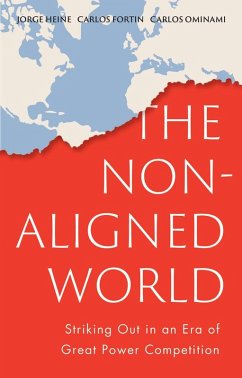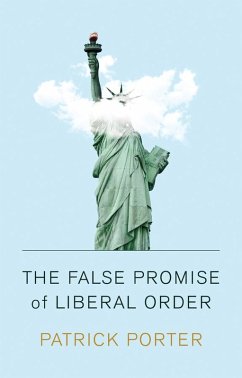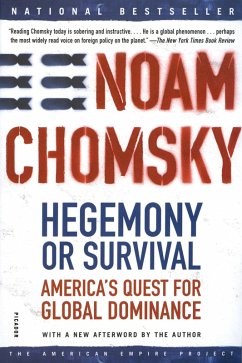
Why America Can't Retrench (And How it Might) (eBook, ePUB)
Versandkostenfrei!
Sofort per Download lieferbar
14,99 €
inkl. MwSt.
Weitere Ausgaben:

PAYBACK Punkte
0 °P sammeln!
Even as growing polarization and hyper-partisanship define society and politics at home, American leaders seem to agree on one thing: US military dominance abroad is essential for national security and international stability. This is despite an upswing in popular support for "doing less" overseas.What explains Washington's blinkered view of its foreign policy options? Why is the pursuit of military primacy so deeply entrenched in America that alternative approaches have become unthinkable?The answer, argues Peter Harris, can be found at the level of domestic politics. The modern US state was ...
Even as growing polarization and hyper-partisanship define society and politics at home, American leaders seem to agree on one thing: US military dominance abroad is essential for national security and international stability. This is despite an upswing in popular support for "doing less" overseas.
What explains Washington's blinkered view of its foreign policy options? Why is the pursuit of military primacy so deeply entrenched in America that alternative approaches have become unthinkable?
The answer, argues Peter Harris, can be found at the level of domestic politics. The modern US state was built during World War II and the Cold War to support a globe-spanning and long-term effort to project military power abroad. This domestic order is hardwired to reject foreign policies of restraint or retrenchment. If the United States is ever to assume a more normal world role, it must first undergo a period of domestic reform, renewal, and realignment. This book explains what these domestic changes might look like - and how a grand strategy of restraint can be implemented from the inside out.
What explains Washington's blinkered view of its foreign policy options? Why is the pursuit of military primacy so deeply entrenched in America that alternative approaches have become unthinkable?
The answer, argues Peter Harris, can be found at the level of domestic politics. The modern US state was built during World War II and the Cold War to support a globe-spanning and long-term effort to project military power abroad. This domestic order is hardwired to reject foreign policies of restraint or retrenchment. If the United States is ever to assume a more normal world role, it must first undergo a period of domestic reform, renewal, and realignment. This book explains what these domestic changes might look like - and how a grand strategy of restraint can be implemented from the inside out.
Dieser Download kann aus rechtlichen Gründen nur mit Rechnungsadresse in D ausgeliefert werden.













